The Palestine Festival of Literature schedule is here.
I am writing this in the car on the way from the northern, Israeli-controlled city of Haifa, to the West Bank city of Ramallah. Cell phones beep as we cross between Israeli and West Bank coverage. The view out the window has changed from the north’s dark green mountains and Israel’s manicured landscapes to the rocky textures of West Bank southern hills, the greens and reds and browns of mountain terraces dug painstakingly, precisely, over hundreds of years.
In a few days, over a dozen writers will arrive in Ramallah from different parts of the world to take part in the Palestine Festival of Literature, which I help organize. It is a traveling roadshow that puts on public literary events featuring Palestinian and visiting writers in different cities in the evenings. Over the course of the week, it also aims to show writers something of Palestinian histories and present-day realities. A lot of time is spent on the road, traveling in and around the geography of occupation: the checkpoints, walls, and segregated motorways.

The festival will visit historical sites and meet with Palestinian writers, activists, and cultural workers. It will see what the Hebron Rehabilitation Center is doing to breathe life back into the center of the old city, ravaged and shuttered by one of the most acute, and ongoing, manifestations of settler colonialism and occupation. From there it will go to the famed Mediterranean beauty of Haifa, to see something of Palestinian life inside the Israeli state, a glimpse of what is shared and what is unique.
It will visit the bustling, industrial city of Nablus, a place that has a deep history of resistance and also feels somehow similar to other Arab cities like Cairo and Damascus, though maybe not the latter anymore. It will take in the staggering length of the wall in Bethlehem, stopping on a hill to see how it amputates the land.
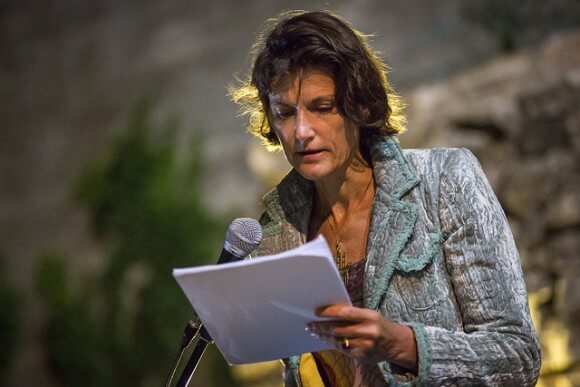
In Jerusalem, it will walk the old city and see the flags marking houses that have been taken over by settlers. It will learn a bit about the matrix of laws designed to undermine the rights of Palestinians to their homes and their legal residencies in the city that has become the symbolic jewel of an occupation which is, in reality, everywhere. It is in the settlements that continue to be built on the hills of the West Bank, in the restriction on communication systems, in access to food products.
In past years we have been able to utilize temporary gaps in the siege on Gaza, to bring in writers from other parts of the Arab world and the Palestinian diaspora. There is no entry for the festival this year, but our Gazan partners are running a series of events featuring writers, film, and music.
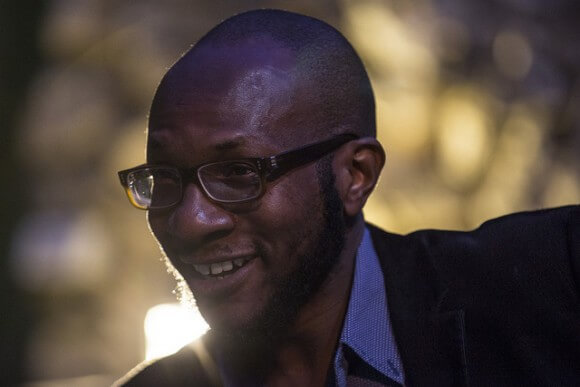
The festival will return to Ramallah at the end of the week for its closing event. Once a summer getaway for Jerusalemites seeking cooler temperatures on its hills, Ramallah has been transformed by the displacement of thousands of Palestinians. It is the capital of the Palestinian Authority and a commercial hub, a mix of traditional houses of white stones and gardens and new malls and apartment complexes.
On the outskirts of the city, the writers will go for a walk with Raja Shehadeh, who has walked the hills for decades, and written extensively about the effects of the occupation on the land.
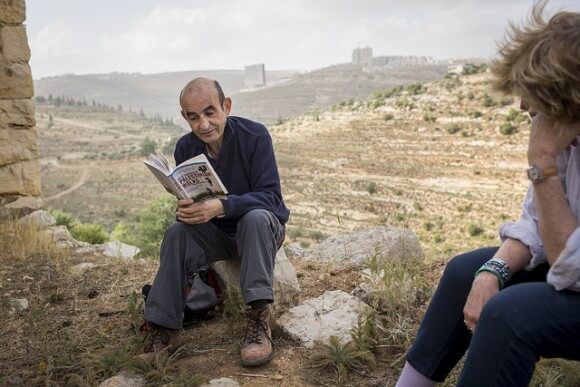
A shorter version of this post appeared on the London Review of Books blog yesterday.
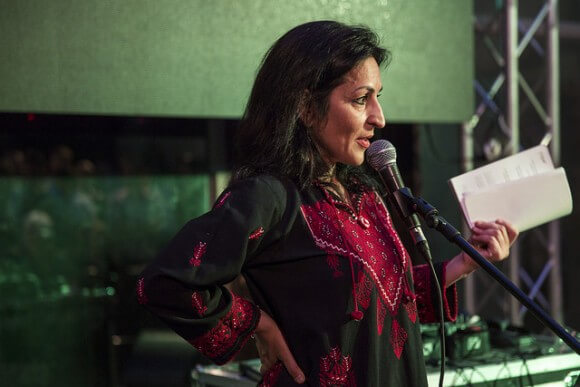

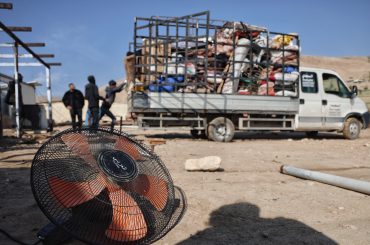
One of this year’s invited artists, filmmaker Sara Ishaq, has been denied entrance to Palestine by the Israeli gatekeepers. Just one more reason to keep supporting BDS.
I wish everyone a good and safe time. It sounds like a remarkable itinerary.
I hope they are all able and willing to share their stories…
I will read that, thanks.
Another year that I miss this special event because of travel.
Thanks for all your hard work and for the efforts and inconvenience faced by your literary stars.
For the future I suggest including more locals. For example I expected to see Osama Elayasa of “The Mad Men of Bethlehem” fame on your roster.